Date: Wednesday, 23 May 2018
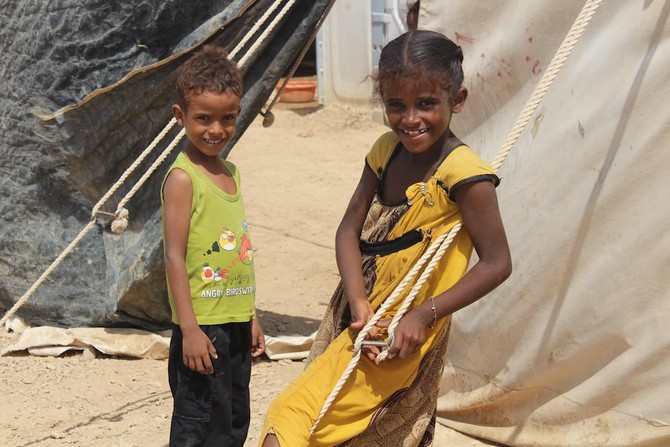
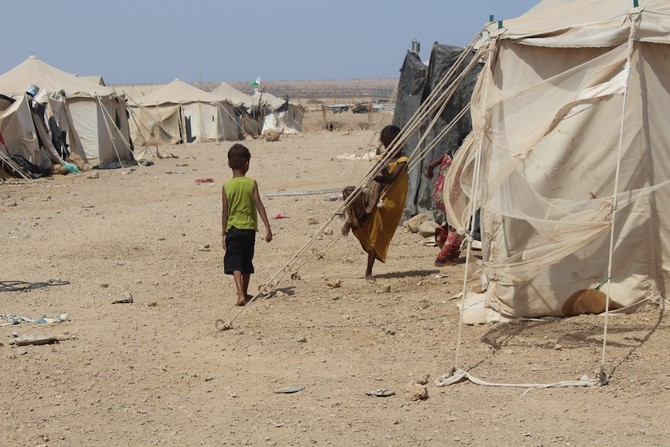

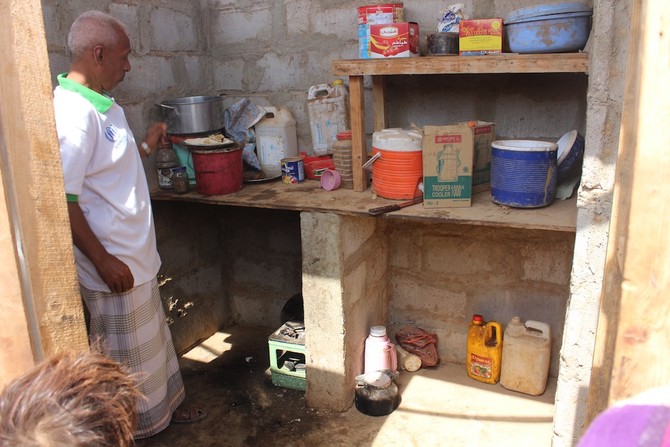
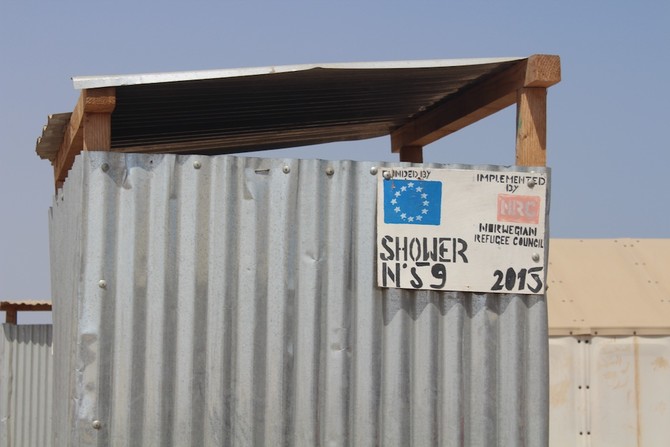
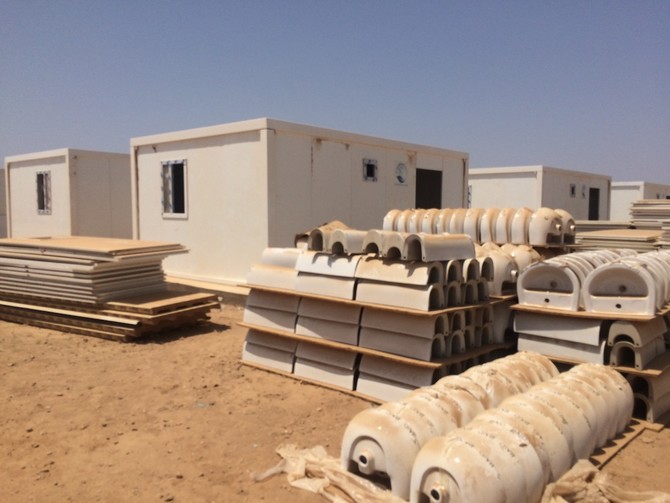
DUBAI: Yemen this week celebrated its national unification day, marking 28 years since the north and south were united — only to be torn apart again by the current war.
Across the Red Sea from Yemen’s coastline, however, a forgotten segment of the country’s vast displaced population would have found little time for the festivities on Tuesday.
Thousands of Yemenis have sought refuge in a desolate, sun-baked desert camp in the tiny nation of Djibouti.
Perched strategically on the Horn of Africa, Djibouti is one of the very few countries in the world to welcome refugees from Yemen.
Associate reporting officer for the the UN refugee agency UNHCR in Djibouti, Vanessa Panaligan, told Arab News that many Yemenis had fled their homeland in search of safety.
“From the stories I keep hearing, they were tired of seeing bombs and constant fighting in their neighborhood,” Panaligan said.
“They thought, ‘I’ve had it, we’ve stayed long enough and it’s time to get going because you never know when you are next, or if you would survive the next couple of months,’” she said.


Four years of war in Yemen have displaced more than 2 million people and left 75 percent of the population in need of humanitarian assistance, according to the UN.
UNHCR said there has been a spike in the number of refugees coming from Yemen in the past six months.
From the end of last year, after the killing of the former president Ali Abdullah Saleh by the Houthi rebels, the situation deteriorated significantly, leading to “a sharp surge in new arrivals” in Djibouti.
Almost 200 refugees arrived in December, and more than 100 in January and February.
Panaligan said that although the influx has tapered off, the conflict shows no signs of letting up, forcing the agency to remain on standby with a contingency plan in case of an emergency influx.
“The sharp increase from what we are used to seeing is definitely a cause for alarm,” Panaligan said. “We’re planning for an emergency.”
In 2015, 38,000 Yemenis traveled to Djibouti. However, due to the harsh living conditions, many left to go elsewhere, while others returned to Yemen. The current population of Yemeni refugees in Djibouti is almost 4,000 — of which 1,900 live at the Markazi refugee camp in the port town of Obock.
Refugees arrive in Obock and are then sent to reception centers, they are then sent to Markazi camp where they are registered, and given food and water.

The tiny coastal country is home to more than 22,000 refugees and asylum-seekers, making up 2.5 percent of its 900,000 population.
Houssein Hassan Darar, executive secretary of the Office of National Assistance for Refugees and Displaced Persons (ONARS), proudly explained his country’s history of helping other nationalities.
Since gaining independence from France in 1977, Djibouti had welcomed tens of thousands of refugees from nations including Somalia, Ethiopia and Eritrea, he said.
In response to the growing refugee population, Djibouti President Ismail Omar Guelleh signed two decrees in December to allow better access to social services and employment.
The current population of Yemeni refugees in Djibouti is almost 4,000
The government said it was building a new school for refugees in Obock.
Refugees with teaching experience are able to work in the existing schools, and are paid and trained by Djibouti’s education ministry, Panaligan said.
In Markazi camp, most of the population is under the age of 18, but fewer than 300 primary students and 20 secondary students are enrolled in school.
Despite attempts to house the influx of Yemeni refugees, living conditions in the camp are harsh.
When Arab News visited the camp in Obock last year, many refugees were living in tents made of thin fabric to protect them from the desert environment and endured scorching temperatures reaching 45 degrees Celsius as well as sandstorms.
Saudi Arabia’s King Salman Humanitarian Aid and Relief Center built 300 housing units in January to ease their suffering, spokesman Dr. Samer Al-Jatili told Arab News.

The housing units hold two rooms. One is the living space, with a kitchen and living room, while the other is the sleeping area. A small closet holds a shower area, and the floor lifts up to work as a toilet.
However, the camp lacks running water and electricity.
Panaligan said that of the 300 housing units, 250 were given to families and 50 to single people. An average family has five or six members.
Refugees are given food rations, but many have said it is not enough. The UNHCR reported that in the past few months, about 164 refugees at Markazi were at risk of malnutrition.
Nathair Ali Thabit, 34, who has a family of five, told Arab News last year that refugees get two meals a day, but no meat or vegetables.
“We have bread and tea in the morning and in the evening rice,” Thabit said. “I haven’t tasted meat, chicken or fish in two years.
“My children sometimes want biscuits or milk, so I try to distract them by taking them to the beach and playing with them.
“We are in the middle of nowhere, so there’s not much we can do” he said.
“We cry in our hearts — we don’t show anyone, we just cry to God.”
Panaligan said that despite the challenges of life in Djibouti, Yemeni refugees come for safety, which is missing in their homeland.
“Many have come to join their families who left Yemen last year, too,” she said.